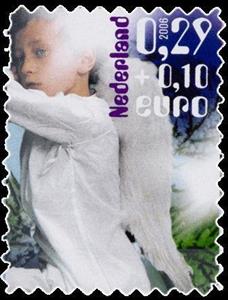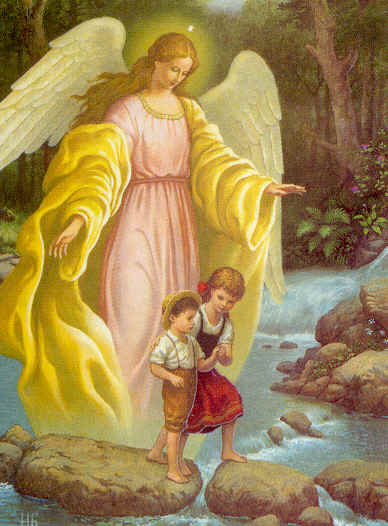Stamp: Child dressed up as angel (Netherlands 2006)
Child dressed up as angel (Netherlands 2006)
23 November (Netherlands ) within release December charities stamps goes into circulation Stamp Child dressed up as angel face value 0.29+0.10 Euro
| Stamp Child dressed up as angel in catalogues | |
|---|---|
| Michel: | Mi:NL 2457 |
Stamp is vertical format.
self adhesiveAlso in the issue December charities stamps:
- Stamp - Child dressed up as angel face value 0.29+0.10;
- Stamp - Child dressed up as angel face value 0.29+0.10;
- Stamp - Child dressed up as angel face value 0.29+0.10;
- Stamp - Child dressed up as angel face value 0.29+0.10;
- Stamp - Child dressed up as angel face value 0.29+0.10;
- Stamp - Child dressed up as angel face value 0.29+0.10;
- Stamp - Child dressed up as angel face value 0.29+0.10;
- Stamp - Child dressed up as angel face value 0.29+0.10;
- Stamp - Child dressed up as angel face value 0.29+0.10;
- Mini Sheet - Children dressed up as angels face value 10*(0.29+0.10);
Stamp Child dressed up as angel it reflects the thematic directions:
Christmas or Christmas Day (Old English: Crīstesmæsse, meaning "Christ's Mass") is an annual festival commemorating the birth of Jesus Christ, observed most commonly on December 25 as a religious and cultural celebration among billions of people around the world. A feast central to the Christian liturgical year, it is prepared for by the season of Advent or the Nativity Fast and initiates the season of Christmastide, which historically in the West lasts twelve days and culminates on Twelfth Night; in some traditions, Christmastide includes an Octave. The traditional Christmas narrative, the Nativity of Jesus, delineated in the New Testament says that Jesus was born in Bethlehem, in accordance with messianic prophecies; when Joseph and Mary arrived in the city, the inn had no room and so they were offered a stable where the Christ Child was soon born, with angels proclaiming this news to shepherds who then disseminated the message furthermore. Christmas Day is a public holiday in many of the world's nations, is celebrated religiously by the vast majority of Christians, as well as culturally by a number of non-Christian people, and is an integral part of the holiday season, while some Christian groups reject the celebration. In several countries, celebrating Christmas Eve on December 24 has the main focus rather than December 25, with gift-giving and sharing a traditional meal with the family.
In Abrahamic religious traditions (such as Judaism, Christianity, and Islam) and some sects of other belief-systems like Hinduism and Buddhism, an angel is a heavenly supernatural or spiritual being. In monotheistic belief-systems, such beings are under service of the supreme deity (i.e. God).
Abrahamic religions often depict angels as benevolent celestial intermediaries between God and humanity. Other roles include protectors and guides for humans, such as guardian angels and servants of God.[3] Abrahamic religions describe angelic hierarchies, which vary by religion and sect. Some angels have specific names (such as Gabriel or Michael) or titles (such as seraph or archangel). Malevolent angels are often believed to have been expelled from Heaven and called fallen angels. In many such religions, the Devil (or devils) are identified with such angels
Biologically, a child (plural: children) is a human being between the stages of birth and puberty. The legal definition of child generally refers to a minor, otherwise known as a person younger than the age of majority. Child may also describe a relationship with a parent (such as sons and daughters of any age) or, metaphorically, an authority figure, or signify group membership in a clan, tribe, or religion; it can also signify being strongly affected by a specific time, place, or circumstance, as in "a child of nature" or "a child of the Sixties". There are many social issues that affect children, such as childhood education, bullying, child poverty, dysfunctional families, child labor, hunger, and child homelessness. Children can be raised by parents, by fosterers, guardians or partially raised in a day care center.



